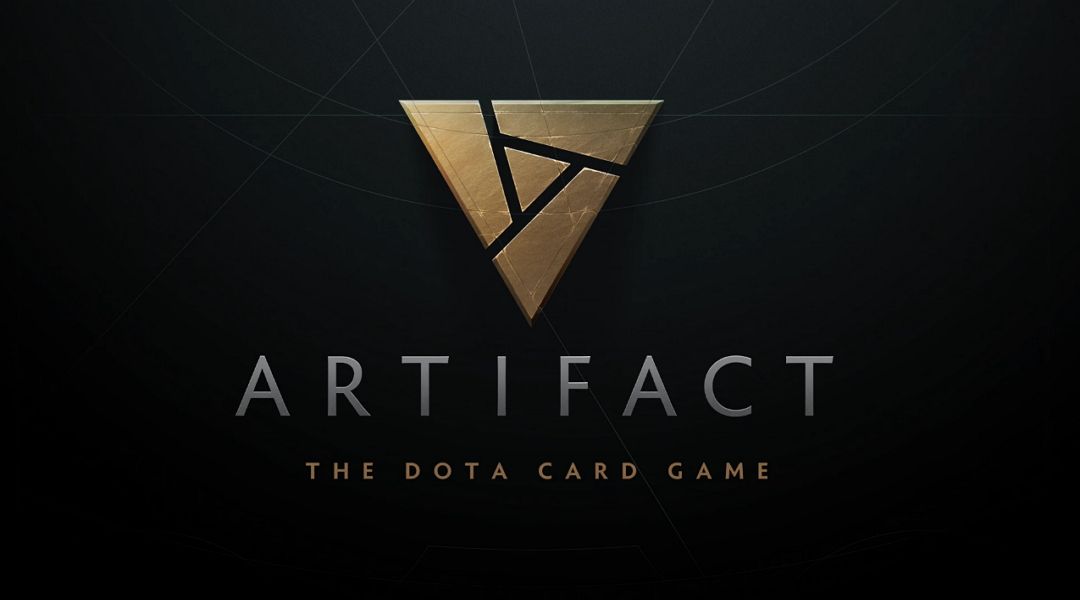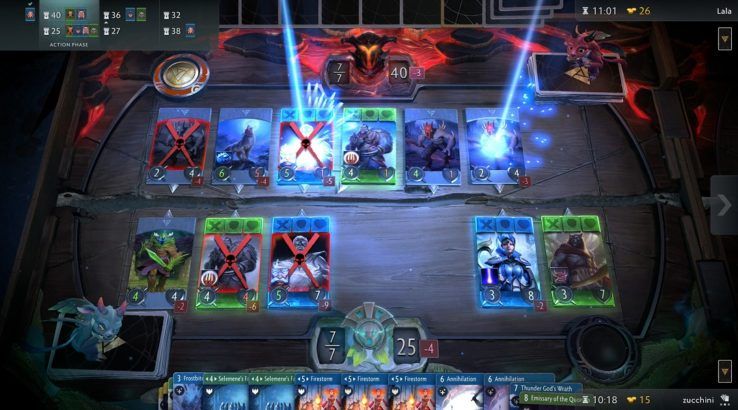At 2017's The International tournament, Valve announced it was working on Artifact, a digital card game based off its popular MOBA Dota 2. While a release date wasn't given at the time, eager players now know when they can get their hands on the title.
The game is set to hit Steam on November 28th of this year and will be playable on Linux, Mac, and Windows operating systems. Unlike other digital card games like Hearthstone or Gwent, which are initially free to start and have in-game microtransactions for extra cards or content, Artifact will be $19.99. Those at PAX West 2018 in Seattle will be able to try out the game there, which will go from August 31st until September 3rd.
In the game, players will select heroes from the world of Dota 2, of which there will be 44 available and create decks using the game's library of 280 cards. The cards themselves can be bought and sold through the Steam marketplace. Like Hearthstone and other digital TCGs, the game will be kept fresh with new expansions and other additional content.
The way the game looks to set itself apart is with its gameplay. Players will still cast creature and spell cards, but much like a MOBA, there will be different lanes on the playing field. Cards played will be assigned to one of those lanes, where their effect will then play out, such as summoning a creature in that location.
Valve isn't messing around and just trying to cash in on digital TCGs (trading card games) with Artifact either, as they have brought on Richard Garfield to help develop it. While Garfield has worked on many other games, both digital and tabletop, he is most well known for being the man behind what many consider to be the original TCG Magic: The Gathering.
The game will also be making its way to iOS and Android mobile devices, as well. While no date was given, Valve is planning on it being released to those platforms at some point in 2019.
Artifact will be available for Linux, Mac and Windows PC through Steam on November 28th, 2018. A mobile release for iOS and Android is slated to come out in 2019.
Source: Polygon


